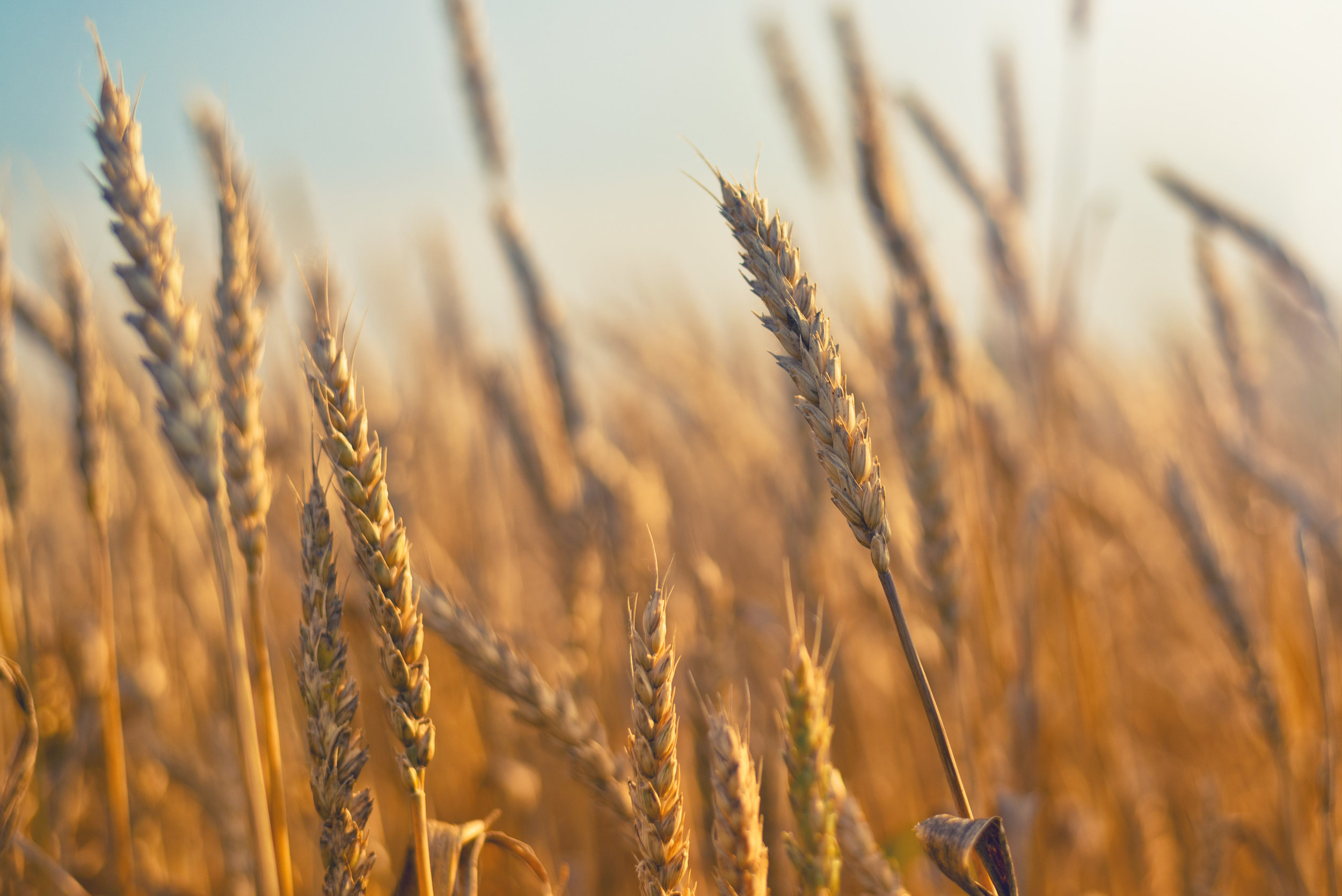Options for farmers to test grain protein in a field
Wheat, Barley and other Cereal Grains are a vital source of protein for the general food and animal food markets. During Harvest, farmers analyse grain for different parameters such as moisture, protein, specific weight and oil content to ensure optimum quality throughout the chain of production. There are different grades of Cereal quality, which are commonly segregated by their Protein content, for example:
Durum wheat is used for pastas as the highest protein content bread making wheat are high protein levels between 14 – 16% other wheats used for biscuits are lower protein level. Lowest protein levels used in animal feed – less than 12%
This is important to farmers because if they cannot meet the specifications they cannot sell at a premium to the traders or millers.
Example: House hold bread manufacturers have a number of contract farms that grow specific varieties of wheat for use in bread making.
Proteins are used to build bone, muscle, teeth, healthy skin and joint tissue through enzymes, hormones, antibodies, and collagen, so getting good-quality protein in our diets is very important. Therefore, if you’re working in the food industry and supply protein foods, then producing high quality protein has a significant value attached.
For those who cultivate grains, this is especially valid. As it’s not just about the health content but value is also placed on the baking quality, storage and blending capabilities.
Producing high protein grains is no easy practice as there needs to be enough nutrient resources to meet the wheat’s requirement for vegetative growth and grain yield. Nitrogen is used for increasing grain protein and grain from wheat stressed by drought or high temperatures during grain fill tends to have a higher protein value. Generally speaking, high yielding varieties are less likely to have a high protein content and vice versa. High protein grains include those such as wheat, rape seed, sunflower and corn.
Why is it important to test grain protein?
Food manufacturers/processors are looking for a particular quality of grain. Supplying the wrong Grain protein levels would lead to a farmers crop being rejected or offered at a lower price. Consequently, it is vital that farmers understand the quality of their grain and segregate their crop to ensure they can get the highest possible price. In particular, if farmers are able to deliver a specific high quality then you will not only have a better chance of a good price but also repeat custom.
Protein provides a good opportunity for securing a better premium so testing grain in the field is essential. It’s also beneficial to provide a copy of the test results to your buyer at the time of delivery, as although traders will usually test the grain themselves, it shows consistency and builds confidence with the prospective buyer.
Testing your crop also minimises the risk of unnecessary costs. For example, **you might travel a long distance to deliver your goods only to find out that there is little of no return on your investment.
Testing methods
Unfortunately, it is difficult to grade the protein level of grain in the field and traditionally, testing grain requires samples to be taken and sent to specialist laboratories, which for farmers is impractical and costly.
However, there are a range of grain analysers on the market. For instance, the Perten IM9500 Plus NIR analyser used by grain intake laboratories is the fastest grain analyser of its kind. It measures a wide range of grains and oilseeds for protein, moisture and more in just 40 seconds and not only provides accurate data, but is also user-friendly and highly reliable.
On-farm testing
Recent developments in technology means that farmers have the opportunity to test grain protein in field. GrainSense is a hand-held device which analyses the quality of grain on the spot, in the field, at silo, in store or on a tractor. It’s the first truly portable and affordable device for farmers which means they can rapidly measure the key parameters of their crops and make decisions that can significantly improve their productivity and profitability.
Farmers now have the capability of fast on-farm segregation of high quality grains during harvest and can make confident decisions within seconds. In addition to testing for protein, GrainSense can also test for moisture, oil and nitrogen.
Highly convenient - portable and five times smaller than similar products on the market it’s perfect for using in the field.
Cost efficient – at least three times less expensive than alternative models.
Quick – there is no need to grind your sample and it only takes 30 seconds to take a measurement including sample loading.
Insightful – includes the most comprehensive package of value-added software including valuable and actionable insights.
Share results – share the measurement results with a prospective buyer.
To find out more about GrainSense or other types of equipment suitable for testing protein, contact Calibre Control on 01925 850 401 or info@calibrecontrol.com


